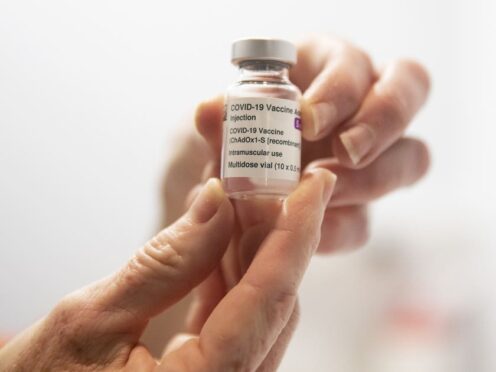The Covid-19 vaccine developed by Oxford scientists during the pandemic has been withdrawn from the market.
Pharmaceutical giant AstraZeneca said that it was “incredibly proud” of the vaccine, but that it had been withdrawn due to plummeting demand.
In December 2020, the vaccine became the second Covid-19 jab to be approved for use in the UK and former prime minister Boris Johnson hailed it as a “triumph for British science”.
Vaccine makers agreed that it could be manufactured on a “not-for-profit basis for the duration of the pandemic across the world, and in perpetuity to low- and middle-income countries”.
Billions of doses were created and made available across 183 countries.
Estimates suggest that the rollout of the jab saved 6.3 million lives around the world.
But AstraZeneca said that the rise of new variants in the virus which causes Covid-19 has shifted market demand towards newer vaccines geared towards tackling these variants.
A spokesperson for AstraZeneca said: “We are incredibly proud of the role Vaxzevria played in ending the global pandemic. According to independent estimates, over 6.5 million lives were saved in the first year of use alone and over three billion doses were supplied globally.
“Our efforts have been recognised by governments around the world and are widely regarded as being a critical component of ending the global pandemic.
“As multiple, variant Covid-19 vaccines have since been developed there is a surplus of available updated vaccines. This has led to a decline in demand for Vaxzevria, which is no longer being manufactured or supplied. AstraZeneca has therefore taken the decision to initiate withdrawal of the marketing authorisations for Vaxzevria within Europe.
“We will now work with regulators and our partners to align on a clear path forward to conclude this chapter and significant contribution to the Covid-19 pandemic.”
AstraZeneca has faced a number of claims of vaccine injury linked to the jab.
On April 7 2021, the Medicines and Healthcare products Regulatory Agency (MHRA) issued updated information on the “possible risk of extremely rare and unlikely to occur specific types of blood clots” following vaccination with the AstraZeneca jab.
The regulator said the benefits of vaccination “continue to outweigh any risks” but advised “careful consideration be given to people who are at higher risk of specific types of blood clots because of their medical condition”.
Last year lawyers acting on behalf of father-of-two Jamie Scott told the High Court that he has suffered brain injury after receiving the vaccine.
Commenting on the withdrawal, Dr Michael Head, senior research fellow in global health at the University of Southampton, said: “It has been an excellent and vital vaccine, a key part of the pandemic response for most countries around the world.
“There would have been far more deaths, hospitalisations, illness and transmission, if we hadn’t had the AstraZeneca vaccine, alongside the other key vaccines such as Pfizer and Moderna.
“There are known adverse events, such as the blood clots, but these are rare, and the safety profile is overall very good. For comparison, the accepted rate of blood clots is much higher in medicines prescribed in areas of women’s health, such as the combined pill.
“The key reason for the withdrawal is likely to be that other Covid vaccines, such as Pfizer and Moderna, are essentially better products. AstraZeneca is very good, but the mRNA products (and probably Novavax too) are better.
“They have higher effectiveness and the mRNA platforms are more easily adapted towards the latest Covid variants. Thus, they form a key part of most countries’ longer-term strategies.”
